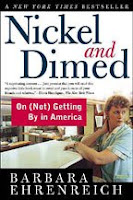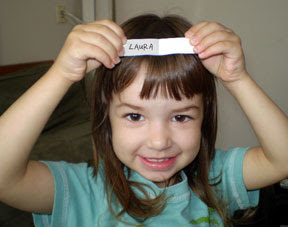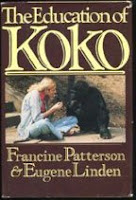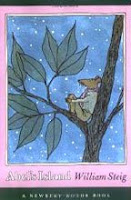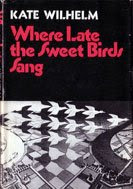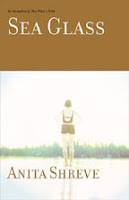A Year of Food Life
by Barbara Kingsolver
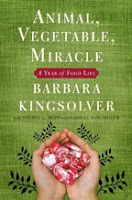 I loved this book. By the time I finished reading it, my husband wearily said \”I know how you feel now when I talk about football or politics.\” He loves eating, but has no interest in knowing how the food is grown, so he had to tell me to stop talking about Kingsolver and gardening! Animal, Vegetable, Miracle is based on a year when the Kingsolvers returned to live on a family farm and vowed to only eat what they could grow themselves or buy locally. They had a large vegetable garden, raised chicken and turkeys, and gathered from the farm\’s fruit trees and wild mushrooms on the hillsides. The author\’s family members made contributions both in the book\’s writing and in providing for the family table (her husband baked bread, her daughter raised the chickens). There is a lot of focus on eating foods in season and supporting local, renewable and organic agriculture, and information on why processed foods and large corporate farming methods are bad news.
I loved this book. By the time I finished reading it, my husband wearily said \”I know how you feel now when I talk about football or politics.\” He loves eating, but has no interest in knowing how the food is grown, so he had to tell me to stop talking about Kingsolver and gardening! Animal, Vegetable, Miracle is based on a year when the Kingsolvers returned to live on a family farm and vowed to only eat what they could grow themselves or buy locally. They had a large vegetable garden, raised chicken and turkeys, and gathered from the farm\’s fruit trees and wild mushrooms on the hillsides. The author\’s family members made contributions both in the book\’s writing and in providing for the family table (her husband baked bread, her daughter raised the chickens). There is a lot of focus on eating foods in season and supporting local, renewable and organic agriculture, and information on why processed foods and large corporate farming methods are bad news.
This book really inspired me to do more with my garden. My daughter and I just picked our first zucchini and made zucchini chocolate chip cookies with the recipe in this book. I learned a lot from Kingsolver: how to know what produce is in season (duh!), how asparagus and peanuts grow, why organic and heirloom produce (and livestock) are healthier, the mysteries of natural turkey reproduction, and much more. Least you feel overwhelmed at how much her family did to be self-sustaining, remember a few things: before beginning the experiment, they spent a whole year learning about their community, finding where to buy local produce and meats, and researching what was on the supermarket shelves. Even Kingsolver had her limits. Yes, her family made their own soft cheese, sausages, yogurt, bread and pesto, and took the poultry from yard to freezer. But other items possible to make at home they continued to buy: pasta, vinegar, hard cheese, apple cider, mayonnaise. They avoided exotic imports like bananas, but still bought some spices and seafood that was shipped from far away. And if you don\’t have space or time to garden, there\’s lots of tips on little things to do for eating better and supporting local growers. Fabulous!
Rating: 5/5 370 pages, 2007
More opinions at:
